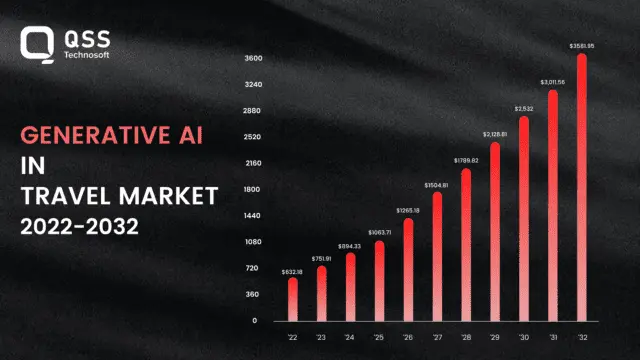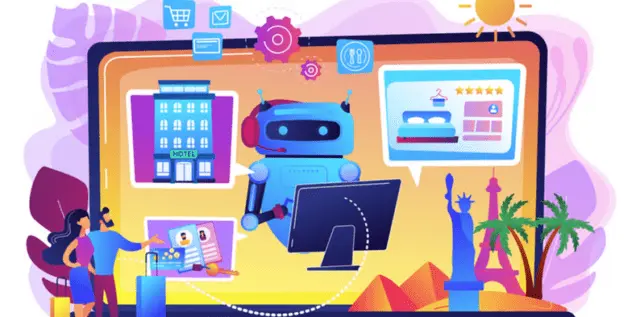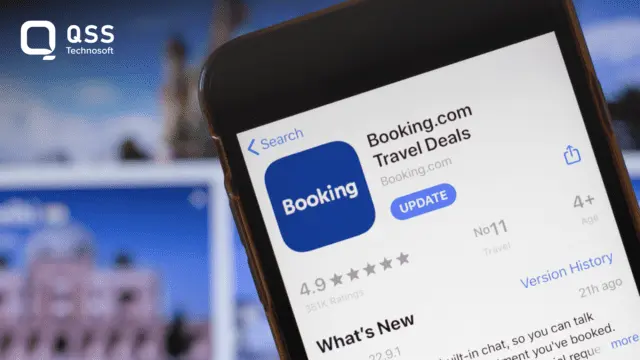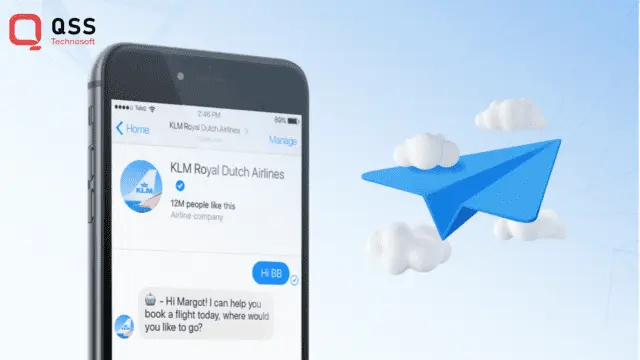Have you ever wondered how the era is changing the way we journey? Well, one terrific advancement called Artificial Intelligence (AI) is revolutionizing the journey and tourism industry. AI is like a super-smart computer that can help make your travel experiences better than ever before. From personalized recommendations to instant help, AI is transforming how we explore the world. According to a study by Precendence Research, The global generative AI In Travel & Tourism market size was estimated at USD 632.18 million in 2022 and it is expected to hit around USD 3,581.95 million by 2032, growing at a CAGR of 18.94% during the forecast period from 2023 to 2032.
That’s a huge amount of revenue, displaying simply how important AI is turning into in the journey enterprise.

To provide you with a concept of the way how AI can improve your travels, let’s say a visitor. With AI-powered chatbots to be had on travel websites and apps, they can effortlessly plan their dream excursion. They simply want to ask questions or percentages of their possibilities, and the AI algorithms will use lots of records to give them personalized recommendations.
It’s like having a wonderful informed tour assistant at your fingertips. This kind of personalization turned into almost impossible within the beyond, but AI is making it a fact for vacationers.
In this article, we will explore the key benefits of AI in the travel and tourism sector, exploring various use cases and examples along the way.
Understanding AI In Travel & Tourism
Artificial intelligence has been revolutionizing the travel and tourism industry by providing a more personalized experience for travellers. AI can assist customers with everything from booking travel arrangements and suggesting personalized itineraries to providing targeted recommendations for things like restaurants and attractions.
One example of AI in travel and tourism is the use of chatbots. Chatbots are digital assistants that can interact with customers and help them with their travel-related inquiries. Expedia, for instance, uses a chatbot named “Elysa” to assist customers in booking a flight or hotel. Elysa uses natural language processing to understand and respond to customer inquiries in a personalized way, making the booking process more efficient and enjoyable.
Another example is the use of AI to analyze customer data to make personalized recommendations. Booking.com uses machine learning algorithms to analyze customer data and provide motel recommendations based on individual preferences and travel history. By using AI, Booking.com can provide tailored recommendations for travelers looking to book their next adventure.

10 Benefits of AI In Travel & Tourism
AI is all about benefits for every industry including travel and tourism. Here we are going to take a look at the top 10 amazing benefits of AI in travel and tourism.
Enhanced Personalization:
AI enables travel companies to create personalized recommendations based on user preferences. By analyzing large datasets, AI algorithms can understand traveler behavior and suggest tailored experiences, including destinations, accommodation, and activities. This level of personalization greatly enhances the overall travel experience, making it more memorable and meaningful for the individual.
Example: The online travel agency Booking.com uses AI algorithms to provide personalized recommendations. By analyzing user data, preferences, and past bookings, Booking.com suggests accommodations that match the traveler’s specific requirements.

Chatbots for Customer Service:
AI-powered chatbots are transforming customer service in the travel industry. These intelligent virtual assistants can handle basic inquiries, provide information about flights, hotels, and attractions, and even assist in booking processes. Chatbots work round the clock, providing instant support and reducing the need for human intervention.
Example: KLM Royal Dutch Airlines uses a chatbot named BlueBot for customer service. BlueBot interacts with passengers to provide flight information, update on travel restrictions and COVID-19 protocols, and answer common queries.

Streamlined Travel Planning:
Planning a trip can be overwhelming, with various factors to consider such as flights, accommodations, and activities. AI simplifies the process by automating and streamlining travel planning. From suggesting the cheapest flights to identifying the best time to visit a destination, AI algorithms assist travelers in making well-informed decisions.
Example: Kayak, a popular travel metasearch engine, employs AI to provide an all-in-one travel planning platform. It aggregates data from various s
ources to offer flight and hotel recommendations, along with insights on travel trends and prices.
Improved Airline Operations:
AI plays a vital role in improving airline operations and efficiency. Predictive analytics and machine learning algorithms enable airlines to optimize flight schedules, manage crew assignments, and mitigate disruptions caused by weather or technical issues. AI-driven systems can predict maintenance requirements, reducing the chances of unexpected delays.
Example: American Airlines implemented AI-based systems to predict and prevent maintenance issues. By analyzing historical data and real-time information, the system indicates which components are likely to fail, allowing preemptive maintenance.
Read Also : How AI and Blockchain Are Reshaping the Insurance Sector?
Enhanced Airport Security:
AI has significantly enhanced airport security measures, making the process more efficient and accurate. Facial recognition technology, powered by AI algorithms, is used to identify passengers, reducing wait times, and enhancing overall security standards.
Example: The Orlando International Airport utilizes AI-powered facial recognition for identity verification. Passengers can simply walk through a scanning system, reducing the need for manual document checks.
Augmented Translation Services:
Language barriers can hinder travel experiences. AI-backed translation tools have bridged this gap and made communication easier for travellers. Real-time translation apps, speech recognition, and natural language processing have made it possible to converse with locals and navigate foreign destinations with ease.
Example: Google Translate is a widely-used AI-powered translation service that supports over 100 languages, assisting travellers in understanding menus, signs, and conversations.
Efficient Revenue Management:
AI-driven revenue management systems empower hotels and tourism businesses to optimize pricing strategies. By analyzing historical data, market trends, and competitor rates, AI algorithms can determine the ideal pricing strategy to maximize revenue and occupancy rates.
Example: The InterContinental Hotels Group uses an AI-based revenue management system that analyzes data from booking platforms, competitor rates, and historical trends to optimize pricing and drive higher revenue.
Voice Assistants for Travel:
Voice assistants have become an integral part of our daily lives, and their presence is expanding into the travel industry. AI-powered voice assistants, such as Amazon Alexa and Google Assistant, can provide travel-related information, suggest itineraries, and even make bookings based on voice commands.
Example: Marriott International partnered with Amazon to introduce Alexa-powered guest rooms. Guests can use voice commands to request hotel services, adjust room settings, and access information about nearby attractions.
Personalized Recommendations for Destination Experiences:
AI algorithms can analyze vast amounts of user-generated content, such as reviews and social media posts, to provide personalized recommendations for local experiences and activities. This feature helps travellers discover hidden gems and tailor their itineraries according to their preferences.
Example: TripAdvisor employs AI to analyze user reviews and recommend popular attractions, local experiences, and restaurants based on individual preferences.
Read Also : GPT-4: The Advancements Over GPT-3 You Need to Know
Intelligent Travel Assistants: Intelligent travel assistants leverage AI to create seamless travel experiences. These assistants can manage all aspects of a trip, from booking flights and accommodations to providing real-time updates on weather conditions, local events, and sightseeing recommendations.
Example: Lola is an AI-powered travel app that offers a conversational interface to help users plan and book travel. It provides personalized recommendations, handles booking processes, and offers 24/7 support during travel.
Revolutionize Travel and Tourism with AI Solutions from QSS Technosoft!
Are you looking for innovative AI solutions to enhance your travel and tourism business? Or Want to streamline operations, improve customer experiences, and boost revenue in the travel industry?
Look no further! QSS Technosoft is here to transform the travel and tourism industry with cutting-edge AI solutions.
Automate your Tasks: Did you know that AI can automate repetitive tasks in travel agencies, such as booking management and data entry? With QSS Technosoft’s AI-powered systems, you can save valuable time and allow your staff to focus on customer engagement and personalized services.
Maximizing Revenue: Are you interested in using AI algorithms to optimize pricing strategies and maximize revenue? QSS Technosoft develops intelligent pricing and revenue management tools that analyze market trends, competitor rates, and customer preferences to help you make data-driven decisions.
Best Support: How about offering your customers a seamless travel experience? QSS Technosoft’s AI-powered chatbots and virtual assistants provide 24/7 support, answering customer queries, suggesting personalized itineraries, and even assisting with real-time translations – all to enhance customer satisfaction.
Conclusion
AI is truly taking over the travel and tourism industry, providing us with an unparalleled level of personalization, customer service, and efficiency. Who needs all hurdles when you have advanced algorithms planning every detail of your trip?
The days of long waits, lost luggage, and mediocre service are slowly becoming a distant memory. With AI at the side, our travel experiences are bound to be even more flawless and hassle-free.
So buckle up, fellow travellers, because the future of travel is here, and it’s powered by the wonders of artificial intelligence. Cheers to a robotic utopia of travel!
We are proud to mention that our work has been recognized by leading B2B reviews and research platforms like GoodFirms, Clutch, MirrorView, and many more.


AI In Travel & Tourism – 10 Benefits, Use cases and Examples